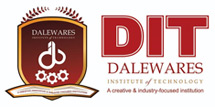Business Administration
Home / Business Administration
The National Diploma (ND) in Business Administration
Our aim in the School of Management and Social Sciences is to deliver real-world business solutions in a rapidly evolving global environment and teach you to be a leader.

The National Diploma (ND) in Business Administration
Goal & Objectives of National Diploma in Business Administration
Goal & Objectives of National Diploma in Business Administration and Management
The National Diploma programme in Business Administration and Management is aimed at producing diplomats with sound theoretical and practical knowledge to carry out a number of activities in a business concern effectively. The ND diplomate should be able to:
- Conduct a simple structured survey on any aspect of business and make appropriate recommendations to the authority.
- Identify management problems at appropriate levels, analyze them and design management strategies to overcome them.
- Carry our inspection and auditing of books and records.
- Carry out evaluation of investment assets for investment purposes and assist in the analysis of investment proposals.
- Interpret basic statistical data.
- Assist in the preparation of short and long term budget plans.
- Write business reports and carry out various types of business communication effectively.
- Explain basic concepts and principles in economics and their applications in mixed economy.
- Apply principles of accounts to different types of accounting transactions.
- Use statistical inferences as aids to business plan and control.
- Understand the basic principles of law and apply same to business relationship and transactions.
- Explain various legal principles and procedures governing the regulations of companies as contained in company decree of 1968.
- Apply mathematics and other quantitative techniques in management decision process.
- Conduct product-planning surveys for manufacturing organizations.
- Organize sales and distribution of materials.
- Carry out market research and similar functions.
- Carry out effective purchasing tasks and sales advertising.
- Undertake proper storage and preservation of materials and goods.
- Keep simple records of financial and other transaction in any organization.
- Speak and write clear, correct and effective functional English.
- Buy efficiently and wisely obtaining the best possible value for every Naira spent
- Ensure continuity of supply both to the markets or production units.
General Entry Requirements
National Diploma in Business Administration and Management (ND)
The general entry requirements for the ND programme are:
- The WASC, GCE ‘O’ Level or the Senior Secondary Certificate (SSC) or their equivalent with four credits including English Language and Mathematics (Literature in English and Oral English are not acceptable in place of English Language) and two other subjects from economics, Business Methods, Principles of Accounts, Literature in English, Commerce, History, Statistics, Geography, Government, Agricultural Science/Biology.
- A credit pass in N.B.T.E. recognized pre National Diploma Examination.
- CURRICULUM
- The curriculum is structured in four semesters of classroom, studio/workshop activities in the institution and 3 to 4 month supervised industrial work experience scheme (SIWES) in a relevant industry. Each semester of institutional based activities shall be for a duration of 17 weeks distributed as follows: 15 contact weeks of teaching; i.e. recitation, practical exercises, quizzes, tests etc., and 2 weeks to be devoted for examination and registration.
- The curriculum of the ND programme consists of four main components visa:
- I) General Studies courses ii) Foundation course iii) Professional course IV) Supervised Industrial Work Experience Scheme (SIWES).
The General Education component includes courses in Social Sciences Studies/Mathematics/ English Language /Communication, Citizenship. Entrepreneurship.
The General Education courses shall account for not more than 15% of the total contact hours for the programme.
Foundation Courses include Economics, Quantitative Techniques, Statistics, and Law etc. The number of hours for the foundation courses shall be between 10 – 15% of the total contact hours for the programmes.
Professional Courses are specialized core courses which give the student the theory and practical skills he needs to practice in his field of specialization at the technician/technological level…
Supervised Industrial Work Experience Scheme (SIWES)
Tailor-made course outline shall be drawn up by the institution for the placement of students in relevant industry of a convenient period of the programme. See detailed guideline on SIWES in paragraph 4.0
Final year (ND) Project.
Final year ND students in this programme are expected to carry out individual project work (not term paper). This should be produced and bounded by the student.
3.0 CONDITIONS FOR THE AWARD OF THE ND
3.1 The ND programme in Business Administration and Management shall be accredited by the NBTE before the diplomats can be awarded the diploma certificates. Details about the process of accrediting a programme for the award of the National Diploma or Higher National Diploma are available from the Executive Secretary, National Board for Technical Education, Plot B, Bida Road, P.M.B. 2239, Kaduna, Nigeria.
3.2 Institutions will award the National Diploma to candidates who successfully completed the programme after passing prescribed coursework, examination, diploma project and the supervised industrial work experience. Such candidates should have completed between 72-80 semester credit units as prescribed in the programme.
The Diplomas shall be classified as follows:
Distinction – GPA of 3.50 and above
Upper Credit – GPA of 3.00 – 3.49
Lower Credit – GPA of 2.50 – 2.99
Pass – GPA of 2.00 – 2.49
Fail – GPA of below 2.00
3.4 Duration
It should be emphasized that the National Diploma (ND) programme is terminal and candidates graduating from the programme should be able to perform at that level. Each Diploma programme is expected to run for 4 semesters of 17 weeks, a candidate must take at least 15 credit units per semester while the maximum varies between 18 and 20.
